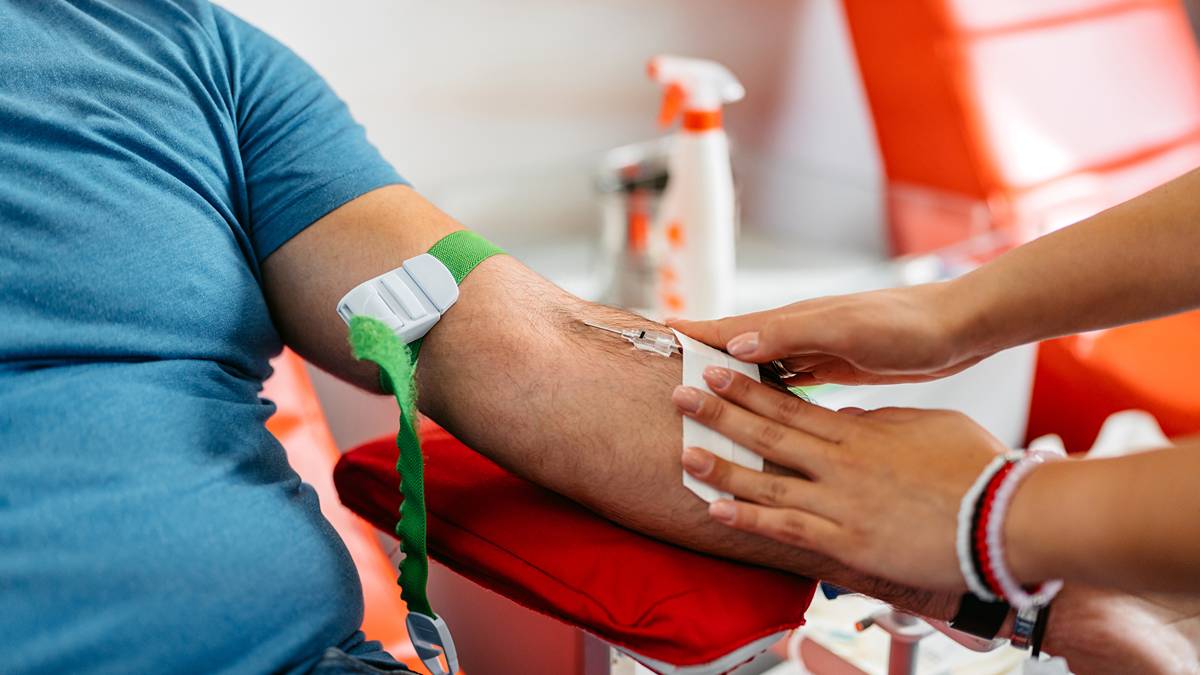Health Check: CSL’s blood business saves the day amid declining flu jab rates
CSL has reported a 7% net profit rise for the December half, with its blood-derived products offsetting weak flu vaccination revenue.

Stockhead
Don't miss out on the headlines from Stockhead. Followed categories will be added to My News.
CSL has affirmed full-year earnings guidance after a heroic performance from its Behring plasma business
Alcidion hits the right notes with $5.5 million Welsh contract
Cann Group wins a reprieve from its bankers on $65 million debt
Even before anti-vaxxer Robert F. Kennedy Jr formally has been appointed as health secretary, US flu jab rates have plunged and that has affected the performance of CSL's (ASX:CSL) Seqirus arm.
Can’t blame him for that one, though ….
But don’t worry too much, CSL shareholders. Not for the first time, CSL’s core Behring plasma arm has come to the rescue with a rock-solid performance, led by its immunoglobulin products.
CSL reported a 7% net profit boost for the December half to US$1.9 billion. On a constant currency basis, revenue increased 5% to US$8.48bn.
In a “disappointing” performance, Seqirus’ revenue plunged 9% to US$1.66bn, given the “significantly lower immunisation rates, particularly in the US.”
The company says lower jab rates are most notable in the 18-to-64 age group.
“After increasing sharply during the pandemic, vaccination rates have declined for various reasons,” CSL chief Paul McKenzie says.
“Consumer apathy and reduced access two of the main factors and lower vaccination rates have also led to competitive pressures in the market.”
He adds in Europe there are signs of stabilising jab rates “and over time we expect to see a similar recovery in the US.”
Management is happier about the Vifor iron and kidney health business, which has been widely criticised ever since CSL acquired the Swiss based entity for US$12 billion ($17bn) in 2021.
Vifor’s revenue increased 6% to $1.08bn, spurred by increased iron sales in Europe and good take-up of the recently-launched Tavneos drug (for forms of vasculitis).
Contrary to some analysts’ expectations, CSL has withstood pressure on plasma donor fees (bearing in mind that, unlike here, US donors are paid for their claret).
While plasma collections “continued to grow”, the cost of collection declines. This is courtesy of a new collection system, Rika, that increases yields by 10% while reducing collection times.
Overall trends are auspicious enough for management to maintain full year earnings guidance (adjusted net profit) of $3.2 billion to $3.3 billion, up 10-13%.
Revenue should increase by 5-7%.
“The fundamentals of CSL’s underlying business are robust and we are in a strong position to deliver annualised, double-digit earnings growth over the medium term,” McKenzie chimes.
Wilsons analyst Dr Shane Storey describes the results as "compositionally wild", given the unexpected strength of Behring and Vifor and the "whopping miss" from Seqirus.
News ‘leeks’ out about Alcidion’s Welsh contract win
Distinguished by its focus on the UK market as a growth driver, point-of-care health IT group Alcidion (ASX:ALC) has inked a handy $5.5 million contract with a Welsh health organisation.
The client is the Hywel Dda University Health Board, which will use Alcidion’s Miya Precision Platform for patient flow and observations and assessments.
The contract is over five years, with an option to extend for seven years for another $7.7 million.
Hywel Dda University Health Board serves 380,000 people across west Wales through its network of acute and community hospitals, integrated care centres and community health services
The contract is the first in Wales for Alcidion. Given the Welsh Government's increasing focus on digital health, the company expects more deals to flow.
Put in context, Alcidion reported $13.1 million of new contracts in the December quarter, with $4.45 million of this revenue to be recognised in the current quarter.
Given that, the Welsh win is worth singing about – as reflected in this morning’s 5% share spurt.
Cann Group wins a (temporary) reprieve
In news from cannabis corner, the troubled Cann Group (ASX:CAN) has won a six-month reprieve from the National Australia Bank, which has extended the maturity on a $66 million construction loan and working capital facility by six months (to September 30, 2025).
The bank has also agreed to capitalise $1.8 million of interest payments.
Cann is currently in discussions with its private credit fund lender, owed $5 million, “to provide similar assistance”.
While it grapples with a financial restructuring, Cann’s performance is improving. In the December quarter the company produced 1.28 tonnes of dried flower from its state-of-the-art Mildura growing and processing plant.
The company is on track for targeted full-year output of 5.5 tonnes.
Another key pot player, Perth-based Little Green Pharma (ASX:LGP) highlights the opportunities from the liberalising German and UK markets.
In the December quarter about 70% of Little Green’s sales of $9.5 million were derived locally. But its European revenue is growing at a faster clip.
In the current half, Little Green will benefit from $6 million of binding purchase orders in Germany and the UK.
Meanwhile, shares in medical dope marketplace and telehealth play Vitura Health (ASX:VIT) have entered trading halt, ahead of a potential capital raising and acquisition.
Vitura owns the Canview ordering and dispensing platform, as well as the online Doctors on Demand and the bricks-and-mortar CDA Clinics.
Originally published as Health Check: CSL’s blood business saves the day amid declining flu jab rates







